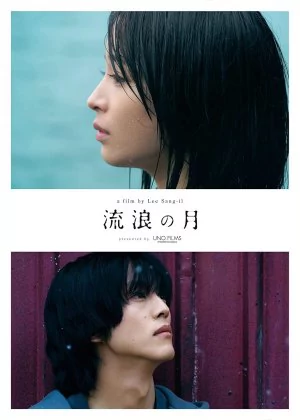The Wandering Moon

Not many Korean directors have been able to make a real impact in Japan, Sang-il Lee is a notable exception. He is a bit slow to make new films and it did take him a while to find his signature style, but his more recent track record is pretty impressive. The Wandering Moon [Ruro no Tsuki] is the latest film to continue his positive streak. People looking for more challenging Japanese dramas already know to look out for Lee's work, others might find a pretty perfect gateway into this little niche. If, of course, the film can find its way to the international stage.
![screencap of The Wandering Moon [Ruro no Tsuki]](/thumbs/img/articles/1200xauto/wandering-moon-1.webp)
At the beginning of his career, Lee tried to break through with some shoddier comedies. Though some of them enjoyed mild success overseas, I can't say I really cared for them all that much. It was only when I encountered Lee's darker side that I began to take a genuine interest in his work. It's good then that The Wandering Moon is in line with Lee's better outings. Maybe not quite as outwardly gritty as Villain or Rage, but topically and emotionally The Wandering Moon is one of his most challenging films to date. And I believe that makes it one of his best too.
I suspect not too many people will feel like sympathizing with a non-acting pedophile, but that's exactly what Lee is gunning for with this film. If you only care about legal arguments or black-and-white moralistic statements, this film will be hell to watch. If, on the other hand, you are willing to explore and maybe even accept the 1% that doesn't fit into broad rationalizations, The Wandering Moon offers a rare glimpse into a world that is deemed inappropriate by most. Don't confuse this with a pro-pedophilia film though, instead, consider it a film that scrapes away at easy truths and crass convictions.
Sarasa finds herself stuck in a poor relationship. Her soon-to-be husband is overly controlling and doesn't quite respect her as a person. Rather, he still sees her as the helpless victim of a kidnapping that happened when he was only 11 years old. Fumi, a 19-year-old student, took her in and the two of them lived together for two months, only to be rescued by the police in the end. On a night out, Sarasa bumps into Fumi. He doesn't seem to remember her, but Sarasa can't get the encounter out of her head and finds herself returning to his café to try and confront her former kidnapper.
![screencap of The Wandering Moon [Ruro no Tsuki]](/thumbs/img/articles/1200xauto/wandering-moon-2.webp)
The cinematography is handled by Hong Kyung-pyo, the man who shot Parasite and helped Koreeda land his first Korean film. He does a pretty good job, though it must be said that The Wandering Moon mostly sticks to established genre conventions. The framing and camerawork are delicate, the colors are perfectly graded, and the lighting is on point, it's just that nothing really stands out. The best moments are when Lee diverts from the narrative and builds in short mood pieces, with some snappier editing and slightly more abstract visuals. These scenes are short, but they do add a lot to the overall mood.
The score is perfectly in line with the visuals. It's not the most challenging or original choice of music, but the quality is well above average and it adds grace and depth to the production. Strings and pianos always work well in Asian dramas of course, and Lee has enough going on elsewhere. Still, it's nice to see that there are a handful of scenes where the visuals and music do come together to provide short atmospheric breathers. These are the moments that help elevate the film and make it something more than a well-produced, challenging drama, giving it that extra lick of cinematic flair.
The performances are strong across the board. As you can imagine, these aren't the easiest characters to portray, but the actors do so with a mix of dedication and subtlety that adds a lot of texture to their parts. Tori Matsuzaka's role in particular is tricky, but his scenes with Mikako Tabe are some of the most poignant ones in the film. Suzu Hirose deserves credit too for playing the older version of Sarasa. Her interest in her former kidnapper feels genuine, which is essential for grounding the minor twist that transpires halfway through. Some powerhouse performances here, that make a real difference.
![screencap of The Wandering Moon [Ruro no Tsuki]](/thumbs/img/articles/1200xauto/wandering-moon-3.webp)
The narrative itself isn't that subtle, Lee loves elaborate constructs and there are quite a few twists and turns that set up all the pieces needed for the drama to unfold. This could've easily turned into gratuitous sentiment or shlocky shock drama, but Lee handles it with the appropriate amount of respect and nuance. Considering the themes and the emotional grief characters face, the film is surprisingly delicate and the closer it gets to its finale, the easier it becomes to empathize with the characters, no matter how dubious and unfathomable some of their urges and choices are.
The Wandering Moon may sound reprehensible and wrong on paper, but the delicate styling, Lee's nuanced direction, and some stellar performances make all the difference. Still, it's not a drama that will appeal to all, certainly not to those who can't open themselves up to the uncomfortable elements that steer the narrative. It might not even matter that much, since it doesn't look like the film is making its way over here, but should you have the chance to watch it, make sure that you're up for it. It's an impressive and powerful drama, but it sure stings.